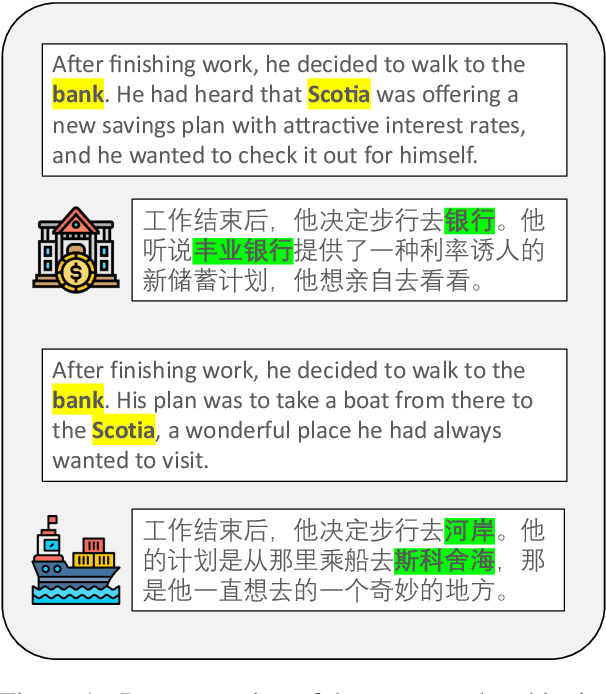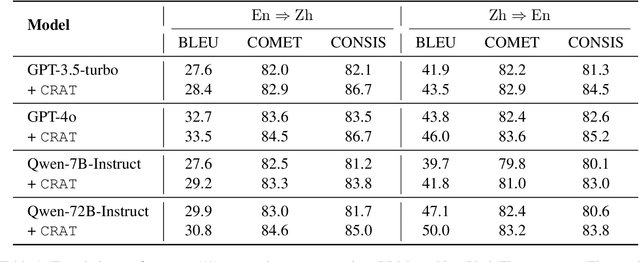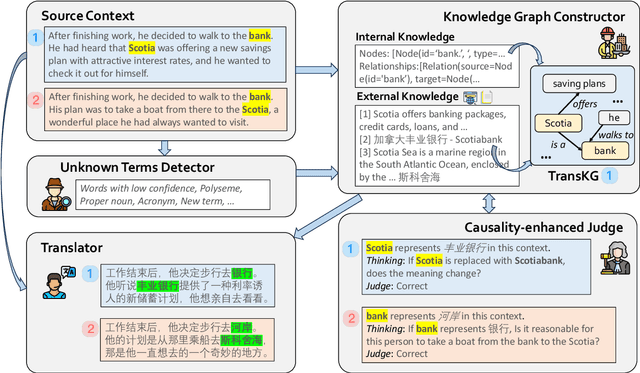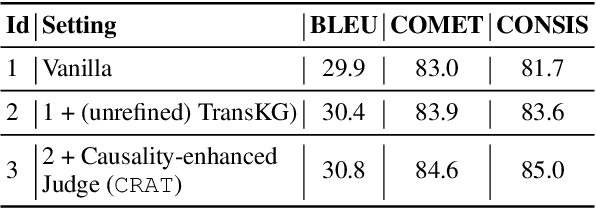CRAT: A Multi-Agent Framework for Causality-Enhanced Reflective and Retrieval-Augmented Translation with Large Language Models
Paper and Code
Oct 28, 2024



Large language models (LLMs) have shown great promise in machine translation, but they still struggle with contextually dependent terms, such as new or domain-specific words. This leads to inconsistencies and errors that are difficult to address. Existing solutions often depend on manual identification of such terms, which is impractical given the complexity and evolving nature of language. While Retrieval-Augmented Generation (RAG) could provide some assistance, its application to translation is limited by issues such as hallucinations from information overload. In this paper, we propose CRAT, a novel multi-agent translation framework that leverages RAG and causality-enhanced self-reflection to address these challenges. This framework consists of several specialized agents: the Unknown Terms Identification agent detects unknown terms within the context, the Knowledge Graph (KG) Constructor agent extracts relevant internal knowledge about these terms and retrieves bilingual information from external sources, the Causality-enhanced Judge agent validates the accuracy of the information, and the Translator agent incorporates the refined information into the final output. This automated process allows for more precise and consistent handling of key terms during translation. Our results show that CRAT significantly improves translation accuracy, particularly in handling context-sensitive terms and emerging vocabulary.
 Add to Chrome
Add to Chrome Add to Firefox
Add to Firefox Add to Edge
Add to Edge